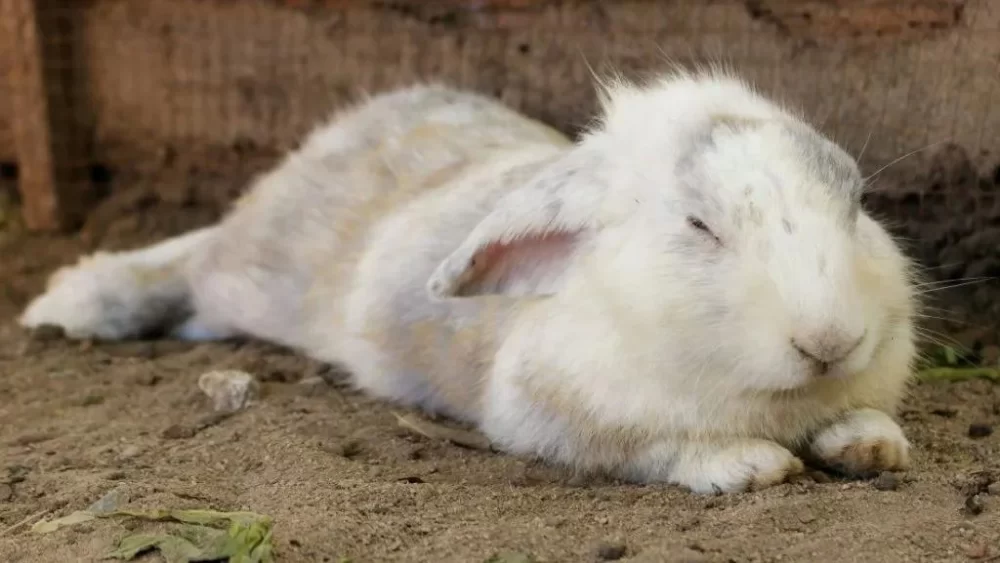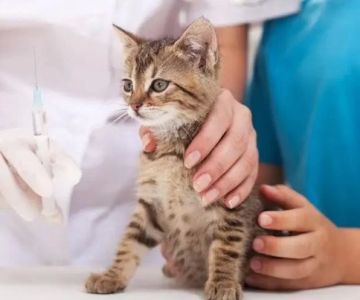- Early Detection of Rabbit Illness
- Common Physical Signs in Sick Rabbits
- Behavioral Changes Indicating Health Issues
- Understanding Rabbit Digestive Health
- Case Study: Real Experience of Rabbit Illness
- Professional Care and Resources
1. Early Detection of Rabbit Illness
Recognizing the signs of illness in rabbits early is crucial for their survival and quality of life. Unlike more expressive pets such as dogs or cats, rabbits tend to hide their pain or discomfort, making it challenging for owners to notice when something is wrong. The secret lies in subtle changes—both physical and behavioral—that may appear gradually or suddenly.
Understanding the common health symptoms in rabbits helps pet owners act promptly, minimizing suffering and increasing the chances of successful treatment. For instance, a slight change in appetite or unusual posture might be the first red flags. Observant owners who regularly check their rabbits’ condition are more likely to catch illnesses in the early stages.
1.1 Why Rabbits Hide Illness
Rabbits are prey animals by nature, and showing weakness in the wild can attract predators. This evolutionary trait means rabbits are naturally stoic and often mask signs of pain or distress. Therefore, subtle signs like reduced grooming or slight lethargy should not be ignored but carefully monitored.
Moreover, because many rabbit illnesses can progress quickly, the sooner you detect symptoms, the better the outcome for your pet.
2. Common Physical Signs in Sick Rabbits
Physical symptoms provide the most visible clues about your rabbit’s health. These can vary widely depending on the type of illness, but some general signs are worth close attention.
2.1 Changes in Appetite and Weight
One of the most consistent signs of illness in rabbits is a sudden loss of appetite or refusal to eat their regular food. Rabbits have sensitive digestive systems that require constant intake of hay and fresh water to function properly. When they stop eating, digestive stasis can occur, which is a medical emergency.
Additionally, noticeable weight loss over a short period can indicate underlying infections, dental problems, or internal parasites.
2.2 Appearance and Coat Condition
Healthy rabbits groom themselves regularly, keeping their fur clean and smooth. When a rabbit becomes ill, you may notice matted fur, patches of hair loss, or dullness in their coat. Eye or nasal discharge, swollen areas, or unusual lumps can also signal infection or injury.
2.3 Respiratory Issues
Signs like labored breathing, sneezing, or nasal discharge can indicate respiratory infections, which are common and potentially severe in rabbits. These symptoms require immediate veterinary evaluation as untreated respiratory illness can quickly deteriorate.
3. Behavioral Changes Indicating Health Issues
Alongside physical symptoms, behavioral changes often provide key insight into a rabbit’s wellbeing.
3.1 Decreased Activity and Lethargy
A sudden drop in activity or reluctance to move can be a strong indicator that something is wrong. Healthy rabbits are typically curious and active, so lethargy often reflects discomfort or pain.
3.2 Changes in Grooming Habits
Reduced grooming or excessive scratching can point to skin problems or systemic illness. Since rabbits rely on grooming to stay clean, any noticeable change here should raise concerns.
3.3 Altered Social Behavior
Rabbits are social animals and may show changes in their interaction with owners or other pets when ill. Withdrawal, aggression, or unusual hiding behavior might suggest distress or discomfort.
4. Understanding Rabbit Digestive Health
The digestive system in rabbits is extremely sensitive and a common source of health problems. Gastrointestinal stasis (GI stasis) is a frequent and dangerous condition that can develop rapidly when rabbits stop eating or drinking normally.
4.1 Importance of Diet and Fiber
A diet rich in fiber from hay is essential to keep the gut moving. Lack of fiber or sudden changes in diet can cause serious digestive issues.
4.2 Signs of Digestive Distress
Symptoms such as decreased fecal output, small or misshapen droppings, bloating, or discomfort when touched around the abdomen indicate digestive distress. Immediate veterinary care is required to prevent complications.
5. Case Study: Real Experience of Rabbit Illness
Consider the story of Sarah, a rabbit owner who noticed her usually lively rabbit, Thumper, started eating less and sitting quietly in his cage. Initially, she thought he was just tired, but after a day, Thumper stopped eating completely. Upon closer inspection, Sarah noticed that his fur around the mouth looked damp and he had mild nasal discharge.
Sarah contacted Hidden Brook Veterinary, where the team quickly diagnosed Thumper with a respiratory infection combined with early signs of dental issues. Thanks to prompt care, Thumper received appropriate antibiotics and dental treatment, making a full recovery. This case highlights the importance of recognizing even minor signs early and seeking professional help.
6. Professional Care and Resources
While understanding the signs of illness in rabbits is essential for owners, professional veterinary care is irreplaceable for diagnosis and treatment. Services like those offered at Hidden Brook Veterinary provide specialized care tailored for rabbits, including dental checks, nutritional advice, and emergency interventions.
Additionally, Hidden Brook Veterinary offers a range of suitable products and support services designed to help rabbit owners maintain their pets’ health proactively. Regular check-ups and expert guidance can prevent many common rabbit health problems from escalating.
By staying attentive to the subtle signs of illness in rabbits and leveraging professional veterinary resources, owners can significantly improve their pet’s wellbeing and longevity.












